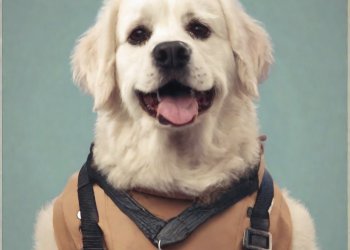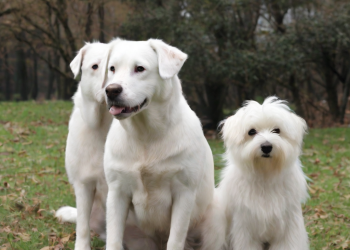What is a mast cell tumor in dogs?
A mast cell tumor in dogs is a type of mast cell tumor that can be malignant. Researching the topic, I discovered that the causes can be varied, and symptoms can include everything from lumps on the skin to vomiting and diarrhea. Early diagnosis and treatment are key to the prognosis of mastocytoma in dogs.
What is mastocytoma in dogs?
Mastocytoma in dogs is a type of skin cancer that affects cells called mast cells. It is important to know the symptoms, diagnosis and treatment to help your pet deal with this disease.
Treatment of mastocytoma in dogs
Treatment of mastocytoma in dogs is crucial for their well-being and survival. The treatment options available are detailed here, including surgery, chemotherapy, radiotherapy and other complementary treatments.
Treatment options available
There are several treatment options for mastocytoma in dogs, depending on the degree of malignancy and the extent of the tumor. It is important to discuss with the veterinarian what is the best option for each case.
Surgery as main treatment
Surgery is the main treatment for mastocytoma in dogs, especially in cases of localized tumors. Complete removal of the tumor is essential to prevent recurrence and spread of cancer.
Chemotherapy and radiotherapy
In cases of more aggressive mast cell tumors or those with metastases, chemotherapy and radiotherapy may be necessary to control the disease. These treatments can help shrink the tumor and prevent it from spreading to other organs.
Other complementary treatments
In addition to surgery, chemotherapy, and radiation therapy, there are other complementary treatments that may be beneficial for mast cell tumor in dogs, such as immunotherapy and targeted therapy. These therapeutic approaches can improve the response to treatment and the animal’s quality of life.
It is essential that owners of dogs with mast cell tumor seek advice from veterinarians specializing in veterinary oncology to determine the best treatment plan for their pet.
3. Prognosis and monitoring of mastocytoma in dogs
Mastocytoma in dogs is a serious condition that requires careful monitoring and ongoing care. The prognosis can vary depending on several factors, and it is important to be aware of possible recurrences and complications.
Factors that influence the prognosis
- Mast cell tumor grade: Low-grade mast cell tumors tend to have a better prognosis than high-grade mast cell tumors.
- Location of the tumor: The location of the mast cell tumor on the dog’s body can influence the prognosis and treatment options.
- Response to treatment: The dog’s response to treatment can be an important indicator of long-term prognosis.
Recurrence of mast cell tumor
It is important to be alert for any signs of mast cell tumor recurrence in dogs, as this may require a change in the treatment plan and closer follow-up by the veterinarian.
Importance of veterinary follow-up
- Regular checkups: It is crucial that dogs with a history of mast cell tumor receive regular veterinary checkups to look for any signs of recurrence or new tumors.
- Follow-up tests: The veterinarian may recommend additional tests, such as blood tests or imaging studies, to monitor the dog’s health more closely.
Knowledge and awareness about mastocytoma in dogs is essential to ensure a favorable prognosis and optimal quality of life for affected pets.
Prevention of mastocytoma in dogs
Mastocytoma in dogs is a worrying condition for many pet owners, but there are preventative measures that can reduce the risk of developing this disease. It is important to be informed and take the necessary precautions to protect your dog’s health.
Preventive measures to reduce the risk of mastocytoma
- Avoid exposure to chemicals and toxins that can trigger tumor formation, such as herbicides and pesticides.
- Protect your dog from insect bites and avoid areas with a high presence of these.
- Provide a balanced and healthy diet to strengthen your pet’s immune system.
- Carry out periodic check-ups with the veterinarian to detect any anomaly in time.
Importance of periodic veterinary check-ups
Regular veterinary check-ups are essential to detect any signs of mast cell carcinoma in its early stages. The veterinarian will be able to perform physical exams and specific tests to evaluate your dog’s health and detect any abnormalities that require attention.
Education on early detection of signs of mast cell carcinoma
It is crucial that dog owners are educated about the signs and symptoms of mast cell carcinoma, so they can identify any changes in their pet’s health. Watching for lumps, skin changes, or unusual behavior can help detect mast cell tumor in its early stages.
Taking preventive measures and being alert to any warning signs can make a difference in the prevention and early detection of mast cell tumor in dogs.
Mastocytoma in dogs: myths and realities
Mastocytoma in dogs is a condition that is often surrounded by myths and misunderstandings. It is important to demystify some of these erroneous beliefs in order to adequately address this disease in our pets.
Demystifying erroneous beliefs about mastocytoma in dogs
– Mastocytoma in dogs is not necessarily a death sentence. With proper treatment, many dogs can live long, healthy lives after being diagnosed with this disease.
– Not all lumps on a dog’s skin are mast cell tumors. It is important to consult a veterinarian to obtain an accurate diagnosis.
– Mastocytoma in dogs is not contagious to other animals or humans. There is no risk of transmitting the disease.
Common misinformation about treatment and prognosis
– Not all mast cell tumors in dogs require surgery. Treatment will depend on the degree of malignancy of the tumor and the general health of the animal.
– Chemotherapy and radiotherapy can be effective options to treat mastocytoma in dogs in advanced stages.
– The prognosis of a dog with mast cell tumor cannot be determined solely by the size of the tumor. Other factors, such as the location and aggressiveness of the tumor, also influence the prognosis.
Importance of education and awareness on the subject
It is essential that dog owners are well informed about mast cell carcinoma and have the support necessary to make informed decisions about their pet’s treatment. Education and awareness are key to addressing this disease effectively.
Experiences of owners of dogs with mastocytoma
Mastocytoma in dogs is a disease that can deeply affect pet owners. Below, we share some experiences of dog owners who have faced this situation:
Testimonials from dog owners
– “When my dog was diagnosed with mast cell carcinoma, I felt overwhelmed and scared. However, with the support of my veterinarian and my family, we were able to find the best treatment for him.”
– “Watching my dog fight mast cell carcinoma was difficult, but his bravery made me feel better. inspired to be strong for him. I learned a lot about the importance of veterinary care and early detection of signs of mast cell carcinoma.”
– “The treatment process was challenging, but the unconditional love my dog gave me gave me the strength to move forward. Now, we enjoy every moment together with gratitude.”
Challenges and learnings
– Accepting the diagnosis of mast cell tumor in a dog can be overwhelming, but emotional support and education about the disease are essential to face the challenges.
– The treatment process can can be expensive and stressful, but the well-being of the pet is the priority, which motivates owners to look for the best options available.
– The experience of facing mast cell tumor in a dog can teach owners about the importance of self-care and emotional strength.
Tips and recommendations
– Seeking support from other dog owners who have gone through similar experiences can provide comfort and guidance during the treatment process.
– Be informed about mast cell tumor in dogs and participate actively in the treatment plan can help owners feel more empowered and prepared to deal with the situation.
– Maintaining a positive attitude and seeking moments of joy with the pet can be beneficial for well-being emotional of both.
Research and advances in the treatment of mastocytoma in dogs
Mastocytoma in dogs is a common type of skin cancer that affects many pets. Fortunately, scientific research in this field has led to important advances in the treatment of this disease. Below are some of the latest advances in the research and treatment of mastocytoma in dogs:
Latest scientific research on mastocytoma in dogs
– Recent studies have identified new molecular markers that can help in the early diagnosis of mastocytoma in dogs.
– Research on the genetics of mastocytoma has shed light on possible risk factors and treatment routes.
Advances in innovative treatments and therapies
– Therapies specifically targeting genetic mutations associated with mast cell tumor are showing promising results in clinical trials.
– Immunotherapy has emerged as an effective treatment option for some cases of mast cell tumor in dogs, improving the response of the immune system against cancer cells.
Future perspectives for the treatment of mastocytoma in dogs
– Continued research in targeted therapies and immunotherapy offers hope for the development of more effective and less invasive treatments for mast cell carcinoma in dogs.
– Collaboration between researchers, veterinarians and pet owners is essential to advance the understanding and treatment of mastocytoma in dogs.
These advances in the research and treatment of mastocytoma in dogs are encouraging for pet owners facing this disease. Staying informed about the latest developments in this field can be crucial to making informed decisions about caring for a dog with mast cell carcinoma.
Mastocytoma in dogs: emotional aspects for owners
The diagnosis of mast cell tumor in a dog can have a significant emotional impact on owners. It is important to recognize and address these emotional aspects to ensure the well-being of both the animal and its human family.
Emotional impact of the diagnosis
Receiving a diagnosis of mast cell tumor in a dog can generate a wide range of emotions in owners, including fear, anxiety, sadness, and concern for their pet’s well-being. It is essential to recognize and validate these emotions in order to manage them effectively.
Emotional support during treatment
Owners of dogs with mast cell carcinoma need a strong support system to get through the treatment process. Having friends, family, and mental health professionals can be essential to maintaining a balanced emotional state during this stage.
Importance of self-care
Owners of dogs with mast cell carcinoma should remember the importance of taking care of their own emotional well-being. This includes taking time to rest, finding activities that promote well-being, and seeking professional support if necessary.
In summary, the emotional aspect of the diagnosis and treatment of mastocytoma in dogs is essential to guarantee the comprehensive well-being of the pet and its owners. Recognizing, addressing and managing these emotions is key to going through this experience in the best way possible.
Mastocytoma in Dogs: Resources and Support Organizations
Diagnosing mast cell tumor in dogs can be overwhelming for owners, but there are resources and support organizations that can provide help and guidance during this difficult process. Here are some options for getting information and support:
Organizations and support groups
– The Mastocytoma Association in Dogs (AMP) offers resources, information and emotional support for owners of dogs with mastocytoma.
– The Mastocytoma Support Group in Dogs (GAMP) organizes meetings and events for owners to share experiences and advice on managing mast cell carcinoma in their pets.
Resources and tools
– The AMP website has articles, guides and informative videos on mastocytoma in dogs, as well as advice for the care and well-being of affected pets.
– The “MastoPet” mobile application provides tools to keep track of treatment, veterinary appointments, and symptoms of mast cell carcinoma in dogs.
Networks of specialized veterinarians
– The Network of Mastocytoma Specialists (REM) brings together veterinarians specialized in the treatment of mastocytoma in dogs, offering access to professionals with experience in the management of this disease.
– The “VetConnect” connects owners of dogs with mast cell tumors with specialized veterinarians, making it easier to find quality veterinary care.
These resources and support organizations can be of great help to owners of dogs with mast cell carcinoma, providing information, guidance, and a space to share experiences with others affected by this disease.
Conclusions and final recommendations
In conclusion, mastocytoma in dogs is a serious disease that requires early diagnosis and appropriate treatment. It is essential that dog owners are informed about this disease and know how to detect the warning signs.
Some final recommendations for dog owners and veterinary professionals include:
For dog owners:
- Educate yourself about mast cell carcinoma in dogs and be alert to any changes in your pet’s health.
- Carry out periodic veterinary check-ups to detect any anomaly in time.
- Seek emotional support and resources available to deal with the diagnosis of mast cell tumor in your dog.
For veterinary professionals:
- Continue researching and developing new therapies and treatments for mastocytoma in dogs.
- Provide emotional support to dog owners during the treatment process.
- Work together with support organizations and networks to improve care for dogs with mast cell carcinoma.
Regarding future perspectives in the prevention and treatment of mastocytoma in dogs, it is crucial to continue advancing research and awareness about this disease. With the support of the veterinary community and the commitment of dog owners, the prognosis and quality of life of dogs affected by mast cell tumor can be improved.









